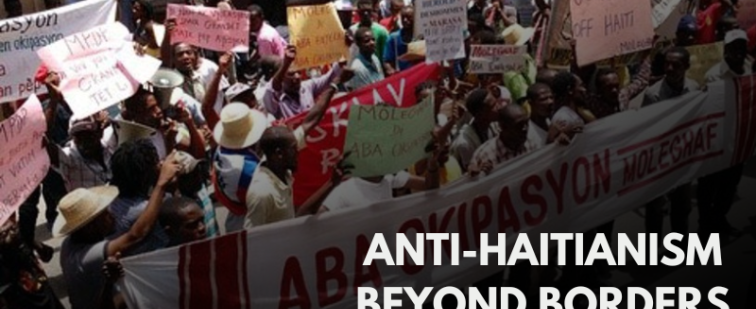Home
Colombia’s armed conflict is taking the AIDS epidemic among the country’s women and displaced population in radically new directions. Both guerrillas and paramilitaries often run prostitution rackets in areas under their control, forcing sex workers to have unprotected sex and extract bits of information from enemy clients. Combatants themselves are five times more likely than civilians to contract HIV.
Independent reporting, free from the government's fiery rhetoric, has been noticeably absent. A careful and sober account of Venezuelan media that focuses on the most basic and uncontroversial facts of what constitutes the Venezuelan media today has been non-existent in mainstream U.S. media (and even in many independent sources as well). Such reporting could present a more accurate picture of the actual situation of freedom of expression in Venezuela.
The Peruvian capital, faced with rapidly rising cost of living, was the epicentre of protests calling for fulfilment of social and wage agreements signed by the government. Although only one violent incident occurred, some 200 demonstrators were arrested.
In northern Ecuador, a pine tree plantation was planted to absorb enough carbon to "offset" the emissions of coal-fired power plants on the other side of the globe. Despite the questionable scientific reasoning behind such "carbon offsetting" projects, the local indigenous community expected the plantation would help improve local economic conditions. Instead, everything went terribly wrong.
U.S. taxpayer-funded groups linked to past U.S. interventions in democratic processes throughout the Americas are gearing up for El Salvador's 2009 elections. In the past, these groups have played an active role in obstructing and/or sabotaging left-leaning, democratic political movements. A fact-finding delegation sponsored by the Committee in Solidarity with the People of El Salvador (CISPES) reports back as the local campaign season gets underway.
According to the UN’s Economic Commission for Latin America and the Caribbean, a growth of only 15% in food prices in 2008 is likely to drive some 15.7 million Latin Americans into a position of desperate food insecurity (“indigence”), and another 15 million into moderate insecurity (“poverty”).
The Republican nominee's campaign team is packed with lobbyists of the oil industry and the Arizona Senator himself has been a reliable friend to the oil industry, leading him to support bloody U.S. military interventions in Iraq and Colombia to keep his friends at several oil companies happy. Under a potential McCain administration, the United States would remain the belligerent policeman of the world's oil fields.
Fourteen years after implementation of the North American Free Trade Agreement, a majority of the population in all three countries believe the agreement has had a net negative effect on their nation, and it turns out that the North American Free Trade Agreement is a misnomer in every one of its terms—it wasn't an agreement, it isn't free trade, and North America doesn't exist. So now what? First, stop extending it. Second, stop copying it.
Despite the fact that public sentiment in Latin America has been strongly against the Iraq war since it began, thousands of Latin Americans have the joined the occupation, many of them as private contractors hired by U.S. companies like Blackwater and Triple Canopy.
Landed elites in eastern Bolivia have allied themselves with multinational agribusiness corporations to consolidate their wealth and power, which they are using to destabilize the government of president Evo Morales. The rising food prices and shortages driven by those same corporations have only made their radical right-wing project stronger.












